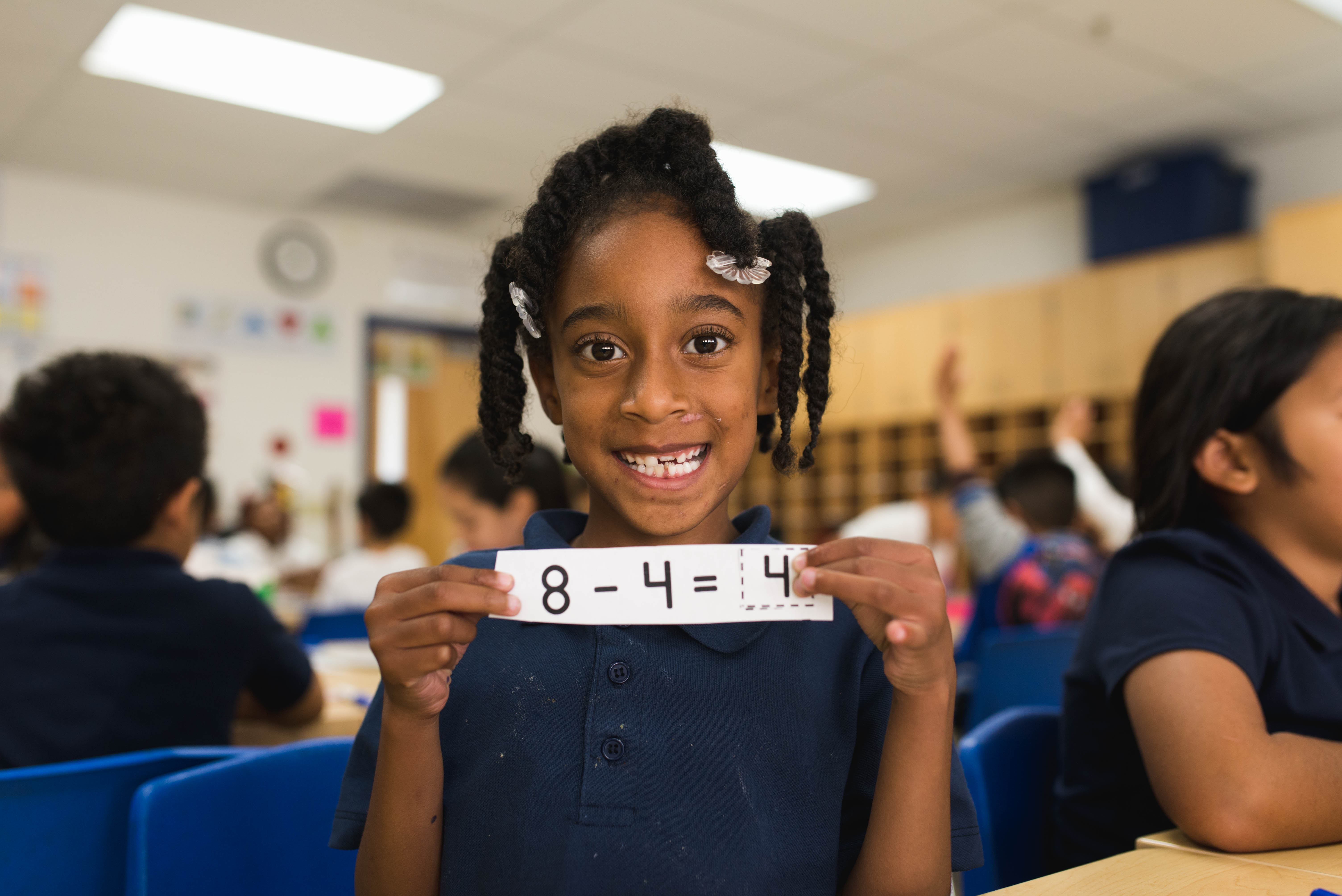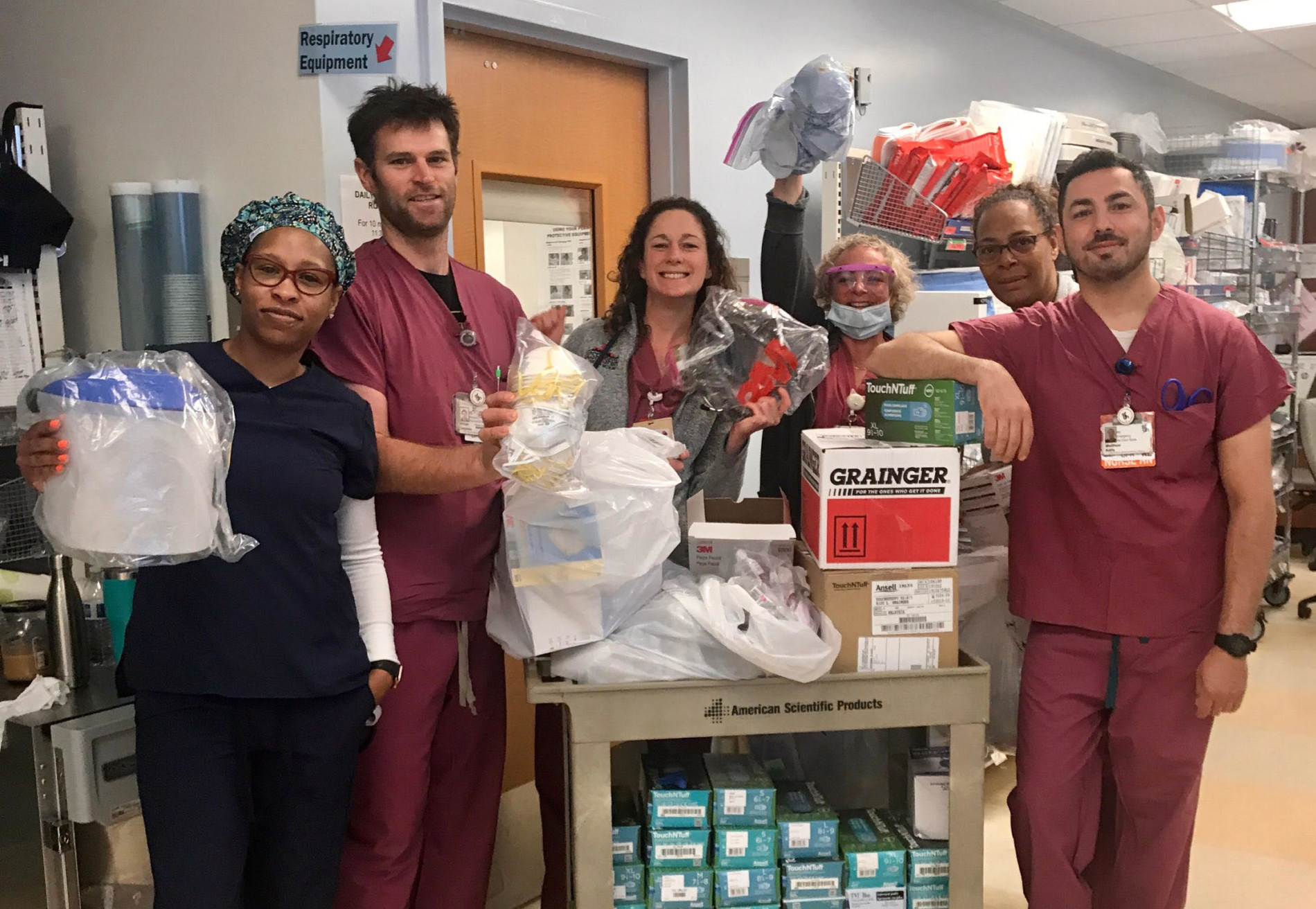The Exploratorium: Training teachers to inspire other teachers
The Exploratorium: Training teachers to inspire other teachers
We believe that a solid K–12 education provides the essential foundation for pursuing a vocation, a college degree, or any role as a productive member of society. The great majority of Bay Area students still spend their days in traditional classrooms, but how they are being taught is evolving. The Koret Foundation continually looks for innovative approaches to tackling the perennial challenge: how to increase student success for a brighter future—for individuals and for our region.
In 2013, the State of California adopted the Next Generation Science Standards (NGSS). The new standards are student centered and inquiry based. They have been designed to build important skills, including problem solving, critical thinking, communicating, and collaborating. For students, the new approach is a radical shift from more formal teacher-led methodology; it is also a significant challenge for the teachers tasked with following the new standards in their classrooms.
The State Department of Education is leveraging the Exploratorium’s expertise to train educators to implement the new approach.
Immersing teachers and students in the joys of science
The Exploratorium is a discovery museum with education embedded deeply in its DNA. The museum’s approach to educating and exciting visitors about the natural world pre-dates the NGSS by over 30 years. Jessica Parker, the Exploratorium’s director of teaching and learning, elaborates, “The Exploratorium has always taken an interdisciplinary approach to learning by fusing science, engineering, art, and human perception.” This experience perfectly positions the Exploratorium to train teachers as well as to teach students. Parker comments, “The new standards go much deeper than a checklist of content to be taught and mastered. A central goal is to give students the chance to experience what actual scientists and engineers do on a daily basis, by engaging in specific practices and techniques.”
The Exploratorium has developed a weeklong workshop to train “teacher-leaders.” A teacher-leader is an educator with expertise in supporting his or her colleagues to expand their teaching skills. Workshop participants increase their understanding of the scientific methodology they will be teaching, by practicing various learning activities designed by the Exploratorium team. These tools are also fully documented online, so that teacher-leaders can provide consistent training and support to their fellow teachers.
The Exploratorium has a five-year plan to train 1,500 teacher-leaders, from all 58 counties in California. These teacher-leaders will in turn reach 75,000 classroom teachers across the state.
Empowering teacher-leaders
Teacher-leaders come from various backgrounds. Some are classroom teachers, including department chairs; others are mentors or coaches; and still others are learning experts who circulate within a school district. What they all have in common is a commitment to helping their peers master new material and approaches. The Exploratorium’s workshops help develop leadership competence and confidence; facilitate regional networking; and promote discussion of how to customize the wealth of digital learning activities available to workshop alumni.
The workshops also serve as a learning laboratory for the Exploratorium team, an opportunity to work closely with participants, evaluating in real-time how curricula can be tweaked or refined. The Exploratorium team is keen to learn how their work translates to classroom practice, and is prototyping an “activity tracker,” to solicit teacher-leader feedback about specific activities.
The Exploratorium’s Teacher Institute, which is available to any teacher who has completed the five-day workshop, creates a sense of community and provides a continuum of professional development and inspiration. After the Summer 2017 NGSS workshop, one veteran science educator commented, “I started my science teaching career with the summer Teacher Institute at least 20 years ago, and it has been the bedrock of my teaching philosophy and practice ever since. Keep up the good work! You are having a tremendous influence on many generations of teachers and even more generations of children.”
Helping Bay Area students make sense (and science) of the natural world around them
The Koret Foundation wanted to ensure that teacher-leaders in public high schools in San Francisco and Oakland are able to take full advantage of the Exploratorium’s training program in the 2018–19 school year.
Within the San Francisco Unified School District, over 56 percent of students are socioeconomically disadvantaged, and 28 percent of students are new English-language learners. In the Oakland public schools, the percentages are even a bit more challenging: Nearly 75 percent of students are socioeconomically disadvantaged, and 32 percent are new English learners.
Jessica Parker points out that the experiential approach is particularly validating for students with limited English fluency. She comments, “Phenomena-based learning invites you to use your eyes, your ears, and, in some cases, all of your senses, to engage in noticing, which leads to scientific thinking. Because you are actually observing phenomena, you aren’t as dependent on academic language to make sense of what you are experiencing. This approach can lower the barriers to entry for learners. And this is a dramatic shift in the classroom—from looking for the ‘one right answer’ to experiencing the natural world, being encouraged to investigate it, and making sense of what you are experiencing.”
Making science and technology more accessible to low-income and minority students early on is a valuable step toward improving the under-representation of these groups in STEM careers.
The science of training teachers is an art. The Exploratorium’s training model is efficient and scalable, and the team’s enthusiasm is contagious. One workshop participant promptly reported, “I have already emailed all my Department colleagues (18) and shared the link to your ‘science snacks.’ They are the best collection of inquiry-based science phenomena that I’ve seen to date. Wonderfully simple, practical, relevant, and explained clearly and concisely.”
Photo credit: © Exploratorium, Exploratorium.edu
Related links
Read more
Arts and Culture, K-12 Education




